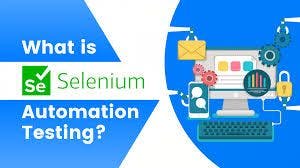246 reads
Why is Selenium the Best Tool for Automation?
by
February 18th, 2022
Audio Presented by
Karna Jyoshna, Postgraduate in Marketing, Digital Marketing professional at HKR Trainings.
About Author
Karna Jyoshna, Postgraduate in Marketing, Digital Marketing professional at HKR Trainings.
